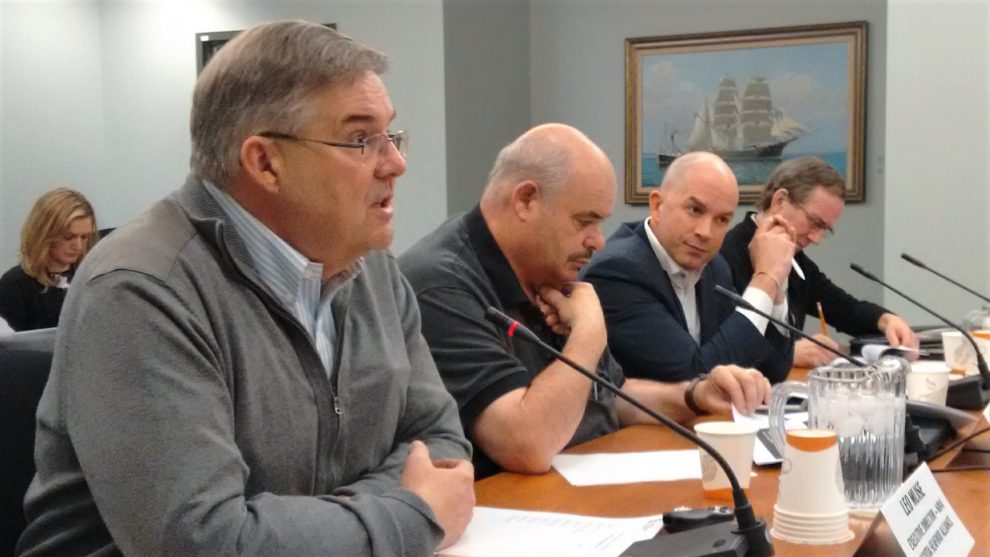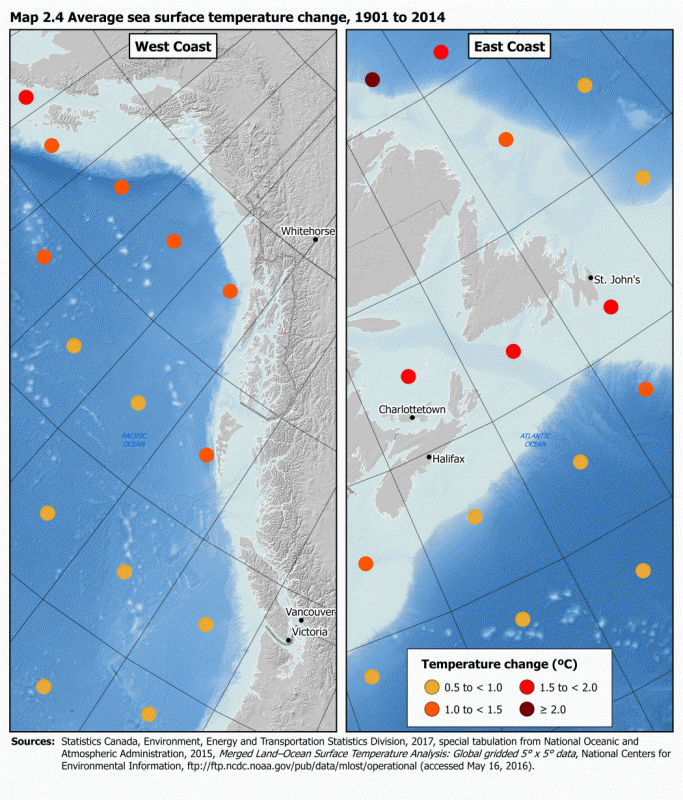Fisheries
Climate change something ‘to get our heads around’: Fishing industry rep
Nova Scotia MLAs hear about challenges facing the industry


caption
Leo Muise, Osborne Burke, Kerry Cunningham and Bernard MacLennan (left to right) of the Nova Scotia Seafood Alliance present to the standing committee on resources.Climate change is an “emerging threat” for Nova Scotia’s fishing industry, says Leo Muise, executive director of the Nova Scotia Seafood Alliance.
On Thursday, the alliance, which represents seafood processors from across Nova Scotia, described some of the challenges their industry faces to the standing committee on resources at Province House.
“I was a denier; I’ll be the first one to tell you… now I’m a firm believer that (climate change) is real,” said Muise.

caption
The waters off the coast of Nova Scotia have raised between 0.5 C and 2 C since 1901He pointed to lobsters as an early warning sign of the threat climate change poses. As water temperatures rise, lobsters and other cold water species may migrate north. Related stories
“If (species) don’t like their conditions, they’ll move somewhere else,” said Muise.
According to Statistics Canada, Atlantic water temperatures have increased between 1 C and 2.6 C since 1901. The lobster haul in Maine has seen a decline since 2012, while Nova Scotia lobster landings have increased during the same time period.
This indicates a northward movement for lobsters, said Muise.
“If that’s true and it continues, then everyone should move to Newfoundland from here,” he joked.

caption
Nova Scotia’s annual lobster catch has seen an increase during the same period that Maine’s has decreased.He also said heavy storms are more frequent, causing equipment damage and forcing fisherman to stay inland and lose money.
Climate change is “something we have to get our heads around,” he said.
Labour shortage
According to the Nova Scotia Seafood Alliance, producers face routine labour shortage and unique employment difficulties, relating to it being seasonal work.
While unemployment remains high in Cape Breton, at 14.3 per cent, “everyone that can be employed, is employed” during peak lobster season, said Osborne Burke, president of the Nova Scotia Seafood Alliance and general manager of Victoria Co-op Fisheries, located in Cape Breton.

caption
Osborne Burke is the president of the alliance. His employer, Victoria Co-op Fisheries, is one of the alliance’s 68 members.But even with every worker working, Burke estimates his processing company still needs 20 more employees to operate at full capacity during peak season.
Currently he uses temporary foreign workers from Mexico, Vietnam and other countries to fill the labour gap. But due to government regulations and the limited supply of local housing, his company can only take on 10 of these workers each season.
“We have to look at temporary foreign workers in the short term, and we need to look at immigration. We’re seriously behind on immigration in Nova Scotia,” Burke said to the committee.
He urged the government to make it easier for companies to bring on temporary foreign workers.
Keith Bain, the MLA for Victoria-The Lakes, agreed.
“We have to make it easier for industries that need to bring them in,” he said after the committee ended.

